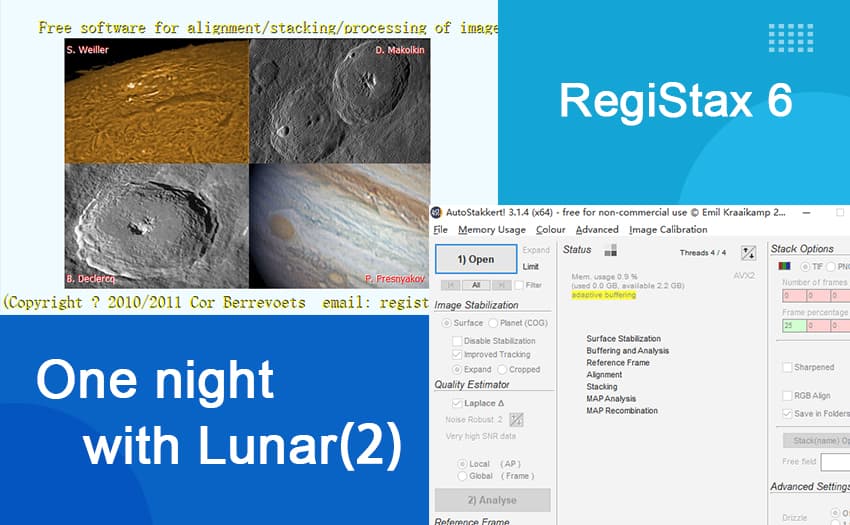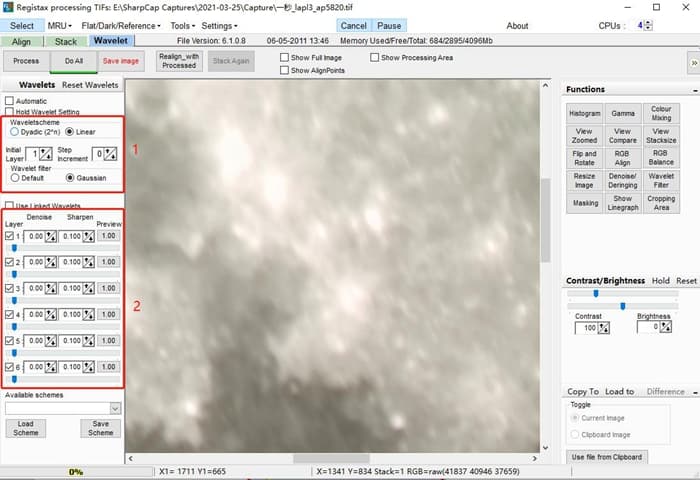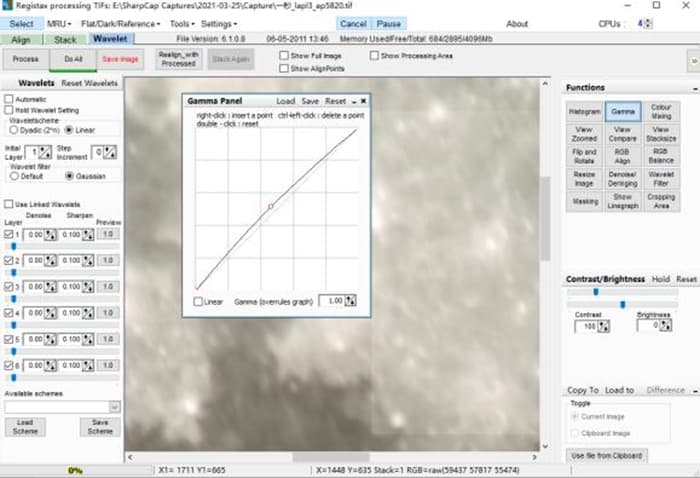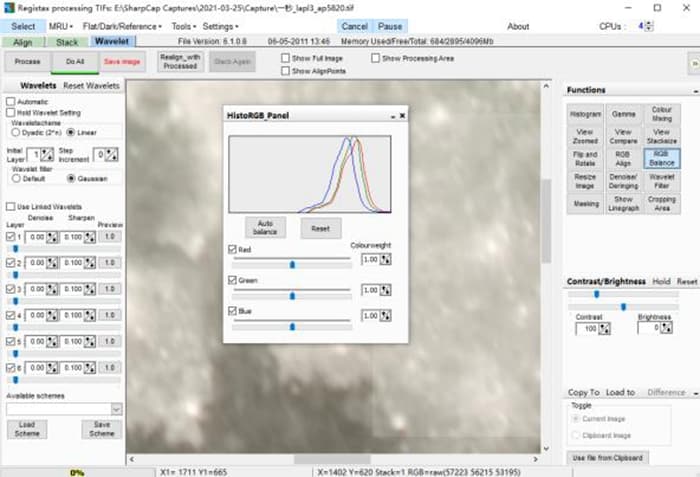Table of Contents

One night with Lunar (2)
On a clear night just a few days ago, my colleague and I tried to capture the moon with an SV501P refractor telescope and SV205 camera on Sharpcap. We also did some processing with Autostakkert!3 and RegiStax6, well, the result is not perfect, but we did have a wonderful time. So in this blog, I want to share a little experience about using that two software, and some of our works will be put at the end of this blog, any thoughts and suggestions are welcomed.
Processing with RegiStax6
Find that TIFF at the original file and open it in RegiStax6.
Two windows would pump out, one is for stretch intensity levels of brightness, and no, thanks. Another one is as below, yes for b/w, no for color.

1. Waveletscheme: select Linear for Lunar surface.
Wavelet filter: select Gaussian
2. 6-level gear of sharpness: There are two options for noise reduction and sharpening. Generally, the first gear is also the highest frequency signal. if the focus is accurate, pulling the first gear of sharpness to the end is enough. When the seeing is particularly good, it even does not have to do so. The second and the third gear are needed when you used Barlow.
Fine adjustment of brightness with Gamma and auto balance with RGB Balance is also helpful to you.


If you feel like there is still something that needs to be done with Photoshop when you finally saving the processed work, then choose PNG for higher clarity. Otherwise, JPG is OK.
Conclusion
Walking through the whole process, I think it’s both simple and difficult. The simple part is, as long as you get a “good enough” material of Lunar,then just follow the guiding line which you can find on the Internet easily and bingo, you just make a “good enough” image of the Lunar surface on your own. But if you want to really figure out the meaning of every adjustment you made and finally make a truly great work as you thought, that requires consistent learning and practice, and yes, that is the difficult part.


There are no customer reviews yet . Leave a Reply !